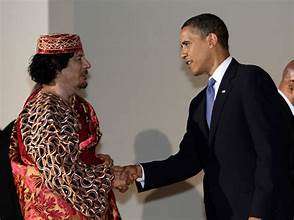The Geopolitical Landscape: Understanding the War Powers Debate Against the Iran-Israel Conflict
As tensions mount in the Middle East, a significant debate is brewing within the halls of Congress regarding America’s potential involvement in the Israel-Iran conflict. With many lawmakers voicing strong opposition to military engagement, things are not as straightforward as they appear. What does this all mean for the future of U.S. foreign policy? At Extreme Investor Network, we delve deep into the intricacies of these discussions and what they might mean for investors and citizens alike.
A Call for Constitutional Adherence
Congressman Thomas Massie recently made headlines with a poignant statement on Twitter: “This is not our war.” He is advocating for a bipartisan War Powers Resolution aimed at preventing U.S. involvement in the Israel-Iran conflict without Congressional approval. While Massie is one of the vocal proponents of this measure, it’s pivotal to understand what it entails and its implications.
His call to action underscores a growing recognition in Congress about the importance of adhering to constitutional protocols regarding declarations of war. Yet, despite the bipartisan support this resolution is rising, Massie stands relatively alone among Republicans in his libertarian stance against military intervention.
The Political Landscape
Interestingly, the political climate around military engagements in the Middle East has shifted significantly. While many Republicans seem eager to take a strong stance against Iran, former President Donald Trump has consistently pledged to avoid foreign entanglements. This polarized environment raises questions about the future of U.S. military policy and the potential repercussions for global stability.
In line with these discussions, Sen. Bernie Sanders has introduced the No War Against Iran Act, aiming to limit the authorization of military funds unless Congress provides explicit approval. However, if history has taught us anything, it’s that the lines of authority between Congress and the Executive branch can often blur.
The Transformative War Powers Act
The War Powers Act of 1973 sought to limit the President’s ability to engage in armed conflict without Congressional consent. Yet, past presidents have navigated around these limitations, notably during the Obama administration when military forces were sent into Libya without Congressional approval. This circumvention highlights the waning effectiveness of the War Powers Act, raising crucial questions about its relevance in today’s geopolitical climate.
The precedent set during the Libya intervention illustrated a troubling trend: the reliance on unelected bureaucrats and advisors to dictate foreign policy, sidelining elected representatives. At Extreme Investor Network, we track these changes carefully, as they can have cascading effects on economic conditions worldwide.
An Inevitable War Cycle
Our advanced predictive models have identified an alarming trend: the cycle of war is poised to peak in 2026-2027, with increased risk starting as early as 2025. This cyclical nature of global conflict is not merely a matter of chance but is deeply embedded in the socio-political fabric.
If large-scale conflict does break out, it could dramatically impact global markets, energy prices, and trade relationships. Investors and citizens alike should prepare for how this might influence the economy, making it imperative to stay informed.
Conclusion: What Lies Ahead
As discussions around the War Powers Resolution evolve, the broader implications for U.S. foreign policy and economic stability remain daunting. At Extreme Investor Network, we will provide ongoing analysis to help you navigate these turbulent waters. The intersection of politics and economics is where informed investment decisions thrive.
Stay tuned for more insights as we monitor the developments in U.S.-Middle East relations and their future impact on global markets. The key takeaway? Knowledge is your most powerful asset. Don’t just react—prepare, strategize, and invest wisely.

